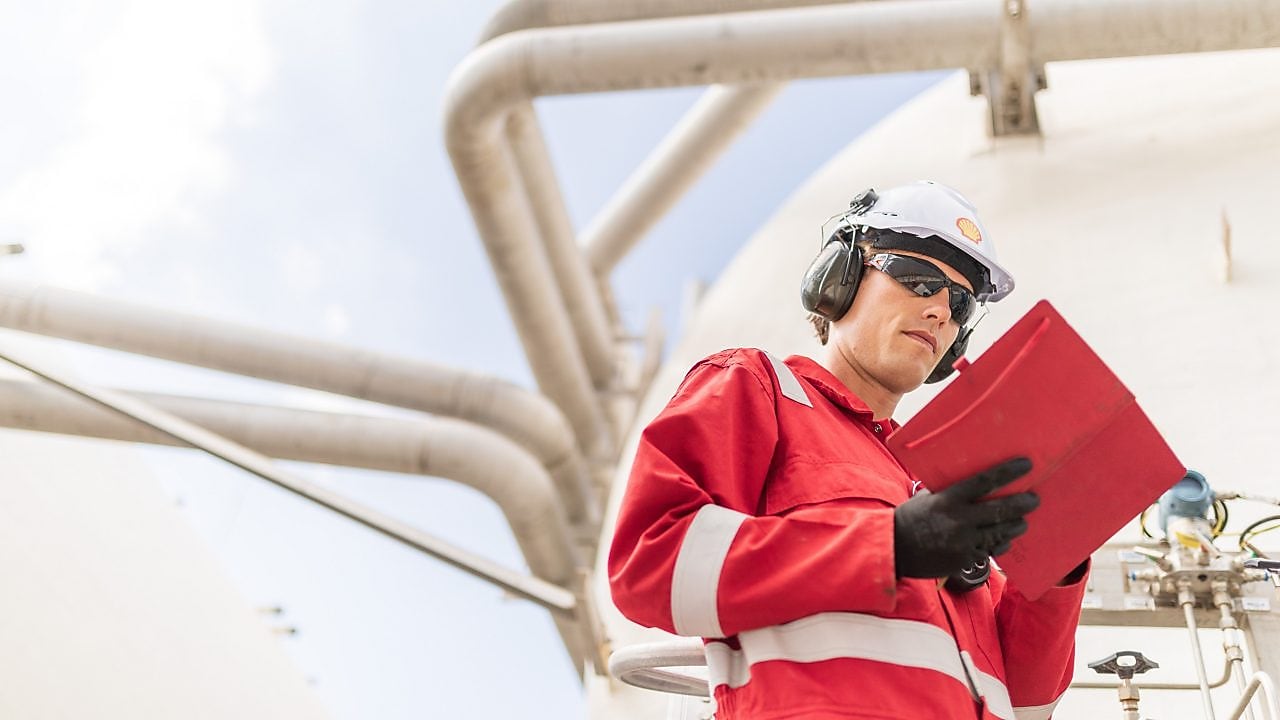
Our Aspiration for Sustainability
At Shell Helix we want to help drive the future by reducing our carbon footprint. We are committed to providing lower-carbon alternatives.
Lubricants play a vital role in keeping the world moving. As the world’s needs for mobility increase, so too will the demand for lubricants1. There is a need to balance this increase in demand with the environmental impact of lubricants. As part of Shell Lubricants, we understand customers and consumers expect brands to offer sustainable products and services and make it easier for them to make sustainable choices.2 Motorists and vehicle manufacturers want lower-carbon alternatives for their current and future mobility needs.
Shell is the biggest supplier of lubricants in the world. Shell Lubricants focuses on delivering products designed to achieve efficiencies in any technology with moving metal parts, helping achieve fuel economies in passenger and commercial vehicles.
To achieve this, we are focused on two strategic initiatives:
- Reducing CO2 intensity of our own products.
- Helping customers manage their sustainability needs.
Reducing CO₂ intensity of our products

Helping customers manage their sustainability needs
We help customers set and meet CO2 emissions goals by providing premium products and cutting-edge technology to help maximise performance and processes.
More information and associated documentation
To support our CO2 compensated product offerings, Lloyd’s Register Quality Assurance (LRQA), an independent, accredited Verification Body, has provided external assurance on the associated processes and underlying product level carbon footprint calculations.
Legal Disclosure
Find more details on Shell’s Net Carbon Footprint ambition and how we plan to meet it.
Sky Scenarios & CN Combined Disclaimer
Assurance Statements
The associated processes have been independently reviewed by LRQA, an external, accredited Verification Body. This includes the following processes:
- Processes for calculation of the life cycle carbon dioxide emission associated with a product (documentation here),
- Processes for carbon credit screening, project performance monitoring, procurement, reconciliation, retirement and certificate issuance (documentation here).
Frequently asked questions
Why aren’t you introducing CO₂ compensated products across your full portfolio now and across your conventional products as well as premium? As this is done through your own offsetting programme surely you can do it sooner?
Why aren’t you introducing CO₂ compensated products across your full portfolio now and across your conventional products as well as premium? As this is done through your own offsetting programme surely you can do it sooner?
We have selected our premium lubricants to be CO2 compensated products, because they are the most efficient to deliver fuel economies for any car. Our aim is to encourage customers and consumers to select motor oils that reduce emissions in their everyday life. For example, the CO2 avoided by fuel savings from top tier fuel economy lubricant compared to a lower tier lubricant helps reduce emissions of a car in use and can outweigh a significant part of the carbon footprint of that lubricant.
Why aren’t you doing more to reduce CO₂e emissions rather than simply offset them?
Why aren’t you doing more to reduce CO₂e emissions rather than simply offset them?
We are taking action to cut the CO2 intensity for the life cycle of each of our products: from raw material extraction, transport, production, distribution, use and end-of-life. We also aim to design products to reduce CO2 emissions in our value chain and with the customer. While these are the leading means to help tackle emissions, until scalable solutions are deployed, carbon offsetting programmes provide an immediate solution to reduce CO2 impact of our products.
How much does offsetting cost and are Shell passing that cost on to the customer?
How much does offsetting cost and are Shell passing that cost on to the customer?
Shell calculate the amount of CO2 emissions generated and will purchase carbon credits to compensate these emissions. The cost is absorbed by Shell and is not charged directly to the customer, but pricing policies vary by region. Please contact a local Shell sales representative for more information about pricing.
Is this just greenwashing by Shell?
Is this just greenwashing by Shell?
No. We have carefully listened to our critics, our supporters and our shareholders. We have heard what they expect this from a company who is the leading lubricant manufacturer, and which wants to be a responsible member of society.
Carbon emissions is a complex challenge with many contributing factors. This is why the response will need to be as equally multi-faceted, requiring every stakeholder to do its part in developing cleaner ways of working.
1 Global Lubricants: Market Analysis and Assessment Report 2019, Kline
2 Customers and consumers are increasingly expecting brands to offer sustainable products and services as a table-stake, with 74% globally citing environmental concerns. Consumers want brands to make it easier for them to make sustainable choices (43%), Project Maximus, Shell Insights + Kantar, Nov 2019

